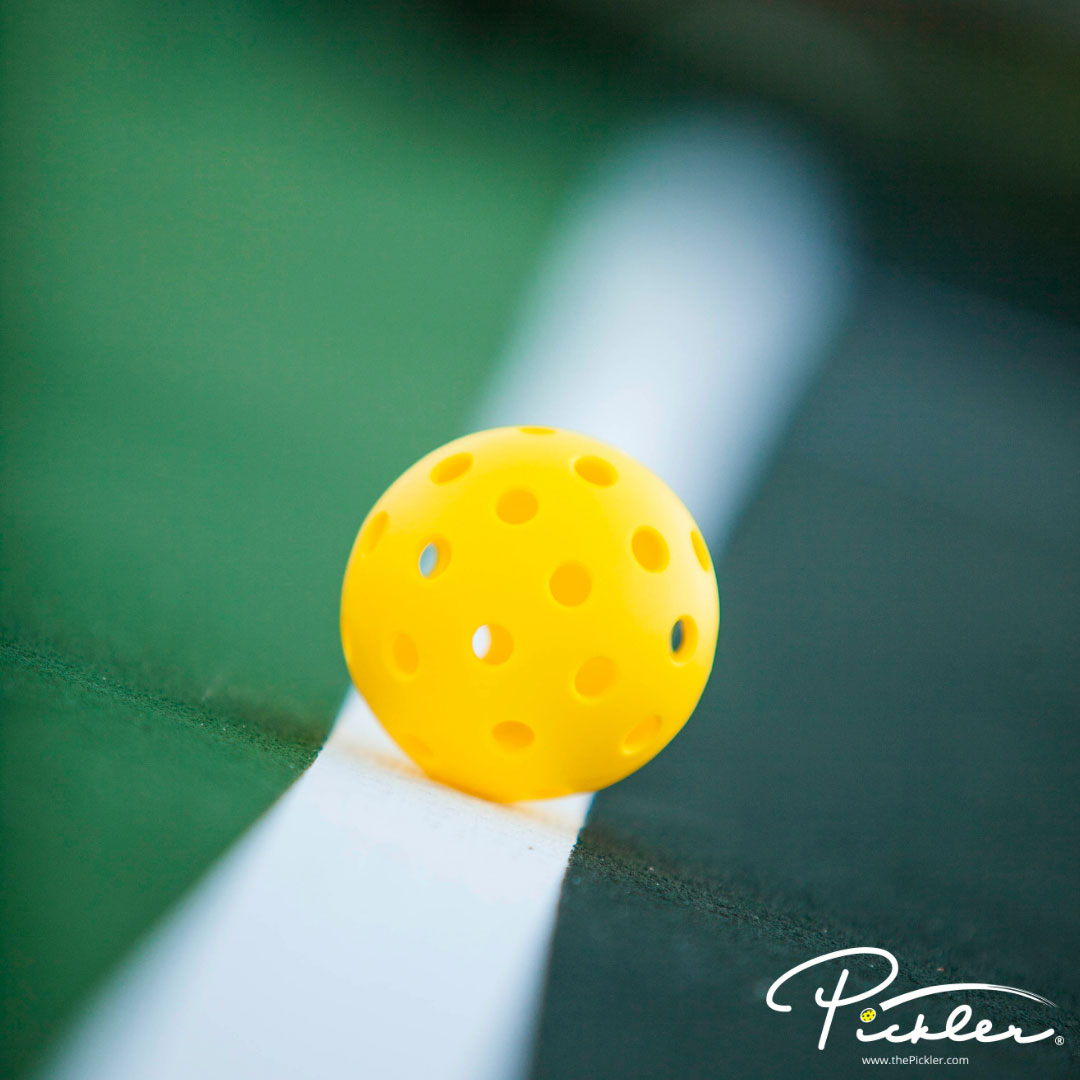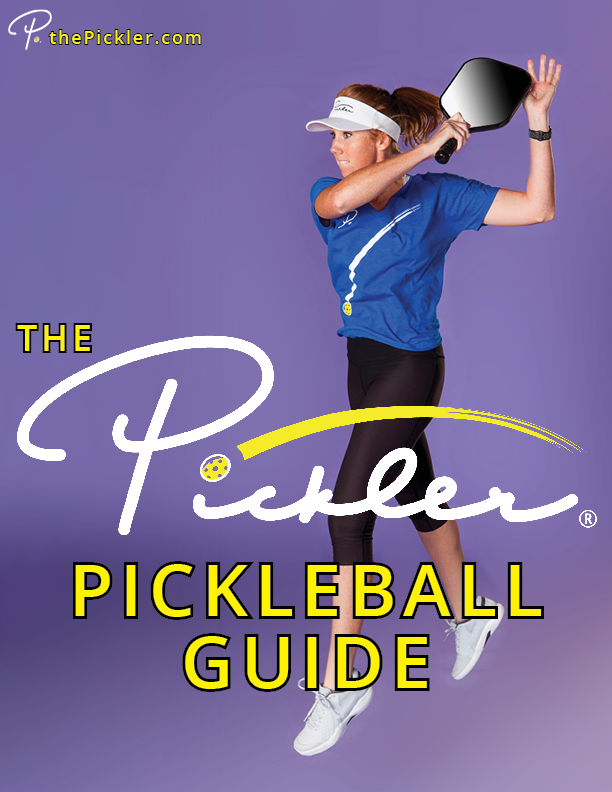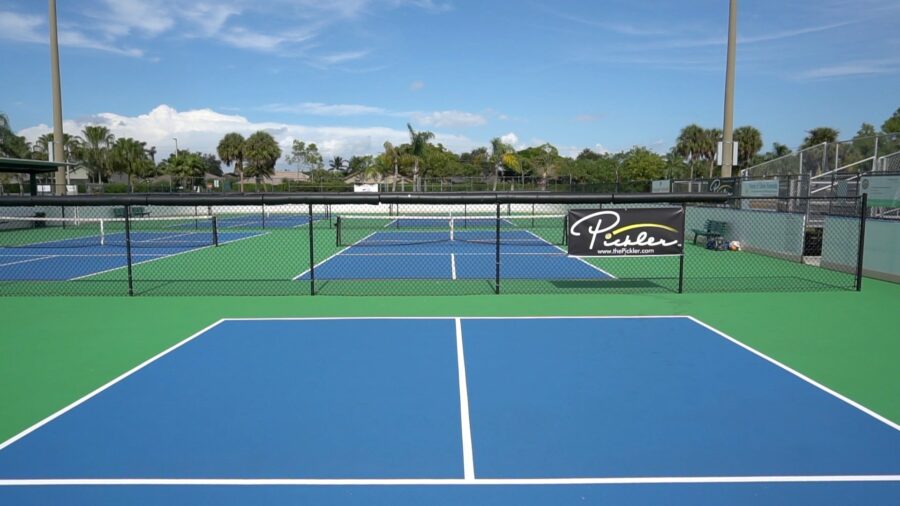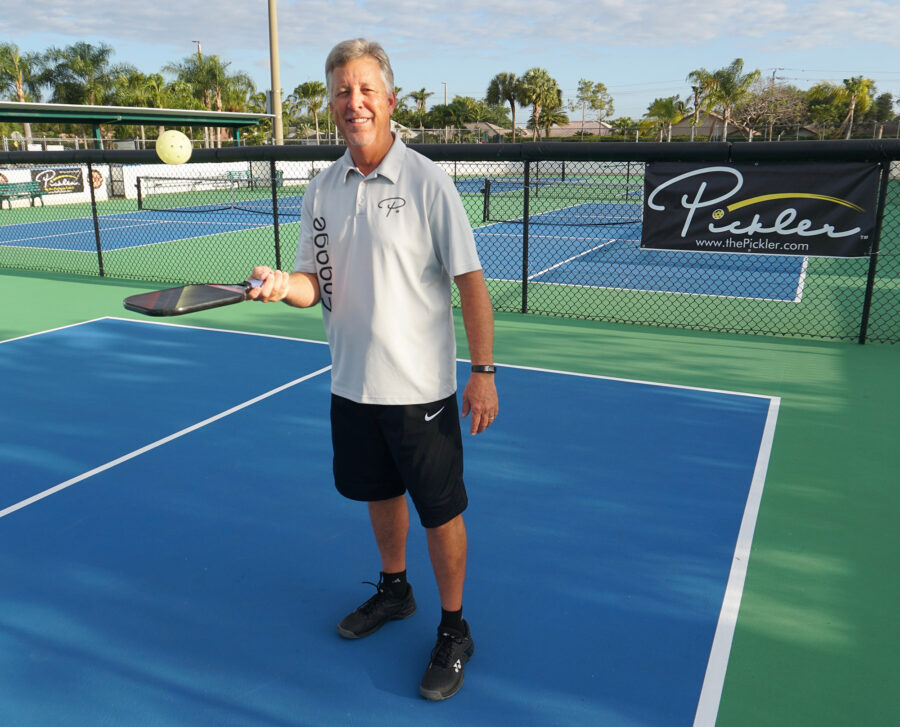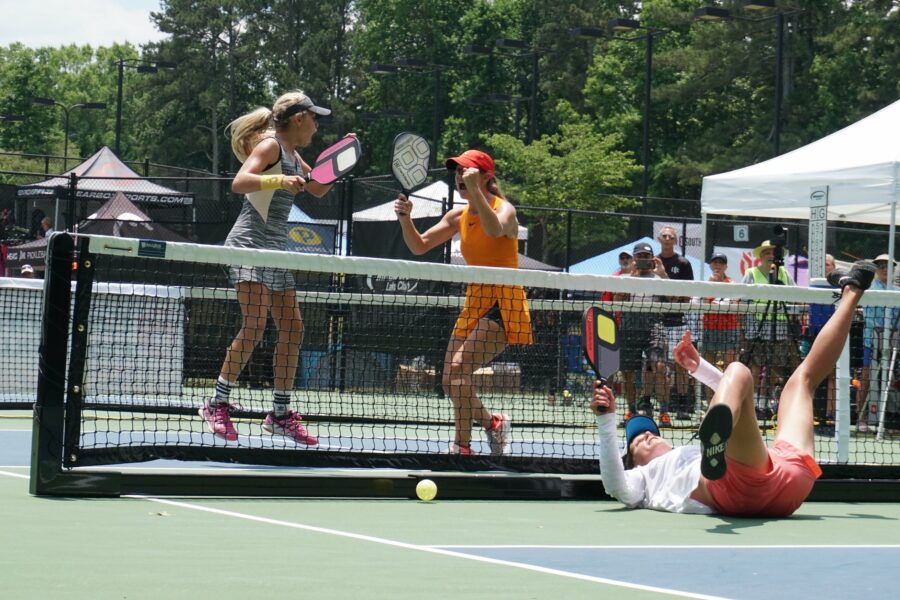Pickleball line call rules seem very straightforward on the surface. However, making the right line call on the pickleball court can actually be a difficult job. This pickleball blog breaks down all of the pickleball rules regarding line calling, so that you will make the right call on the pickleball courts!
Basic Pickleball Line Call Rules
The basic pickleball line call rules are:
- The pickleball must land in the correct service court on the serve. All of the lines of the correct service court, except for the Non-Volley Zone line (also known as the Kitchen line), are “in.” This means that if the served pickleball lands on the sideline, centerline, or baseline, the serve is “in.” If the pickleball lands in the Non-Volley Zone (or the Kitchen), on the Non-Volley Zone line, or completely outside of the lines of the correct service court, then the serve is “out.”
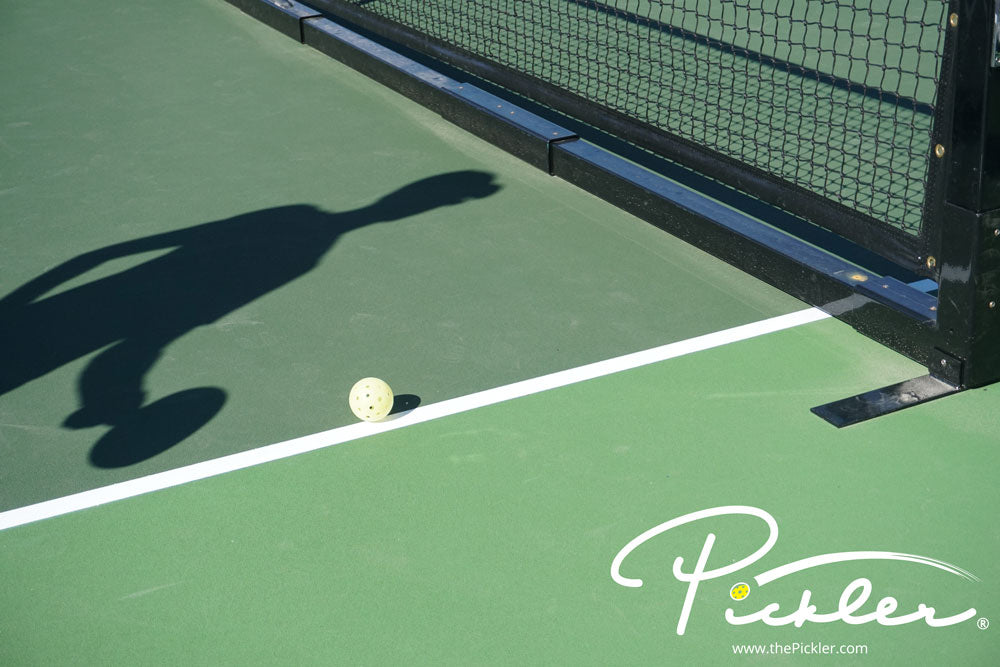
- On any shot other than the serve in pickleball, the pickleball is “in” if it lands anywhere on the pickleball court. This includes all of the lines of the pickleball court. In other words, if the pickleball lands on the sideline, centerline, baseline, or the Non-Volley Zone line on any shot, other than the serve, then the pickleball is “in.” If the pickleball lands completely outside of the lines on the pickleball court, then the pickleball is “out.”
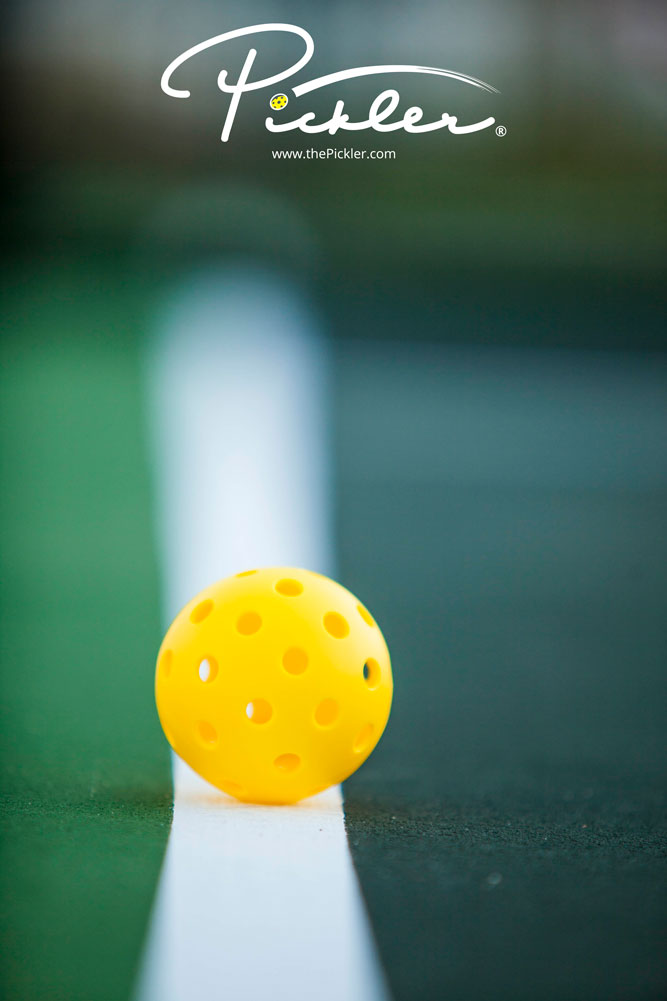
If the pickleball is “in,” then the rally continues on. If the pickleball is “out,” then the player/team that hit the pickleball out of bounds would have committed a fault and will lose the rally.
Who Makes the Line Calls in the Sport of Pickleball?
Line calls in pickleball are made by the players on the pickleball court. Specifically, pickleball players make the line calls on their respective side of the pickleball court. To note, however, players may also call Non-Volley Zone faults and service foot faults on the opponents’ side of the pickleball court (and, if there is any disagreement about the fault, the players will replay the point). In doubles pickleball, either partner may make line calls on their respective side of the pickleball court. The exception to this general rule is if a pickleball game or match has a referee or both a referee and line judges.
If a pickleball game or match has a referee, then the players on the pickleball court remain responsible for most line calls. However, the players will not be responsible for any service foot faults, Non-Volley Zone foot faults, short serves, or other Non-Volley Zone rules. Rather, the referee will be responsible for these faults, short serves, and other Non-Volley Zone rules.
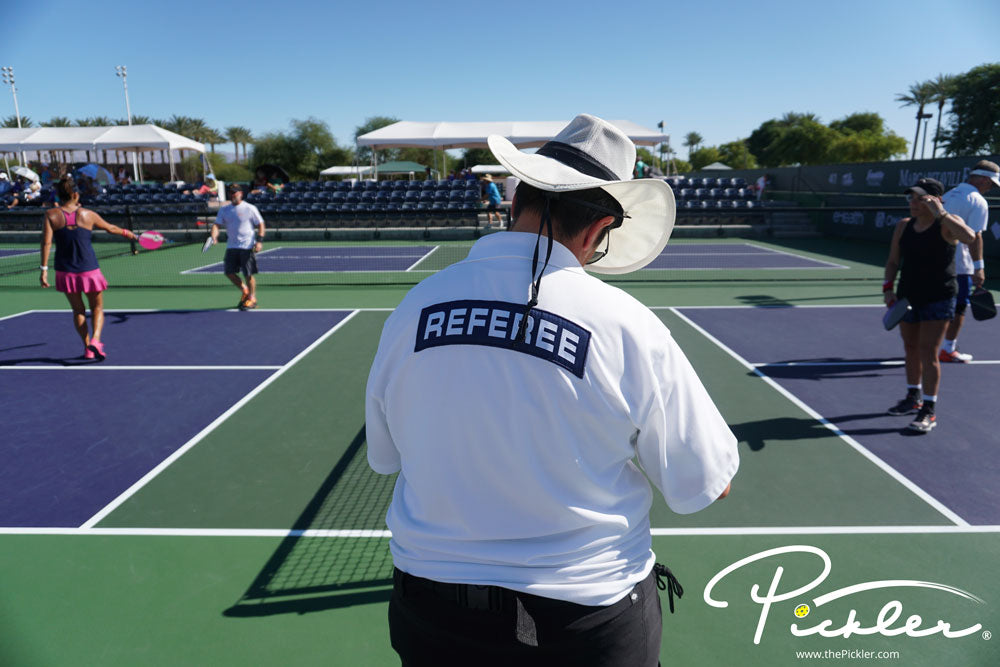
If a pickleball game or match has a referee and line judges, then the players on the pickleball court will not be responsible for most line calls. Rather, the players will only be responsible for making the line call for the centerline on the serve. The referee and the line judges would be responsible for the remaining faults, short serves, rules, and line calls. Any line call by a player (other than the centerline on the serve) is invalid, unless it is to that player’s disadvantage.
If a pickleball match has both a referee and line judges, a player may appeal any line call by a line judge to the referee. If a referee overrules a line judge’s line call, then the players will replay the point. Further, if the line judges and referee are unable to make a line call, then the players will replay the point unless all of the players on the pickleball court agree that the pickleball was “out.”
Culture of Line Calling in Pickleball
The sport of pickleball encourages fair play and good sportsmanship. These overarching principles of pickleball are underscored by the sport’s “Scout’s honor” approach to line calling in most settings, as players are responsible for making line calls in most recreational play and most tournament play. To help foster the sport of pickleball’s honor approach to line calling, the Official Rulebook for pickleball establishes a code of ethics for line calling on the pickleball court. This “Code of Ethics for Line Calling” provides:
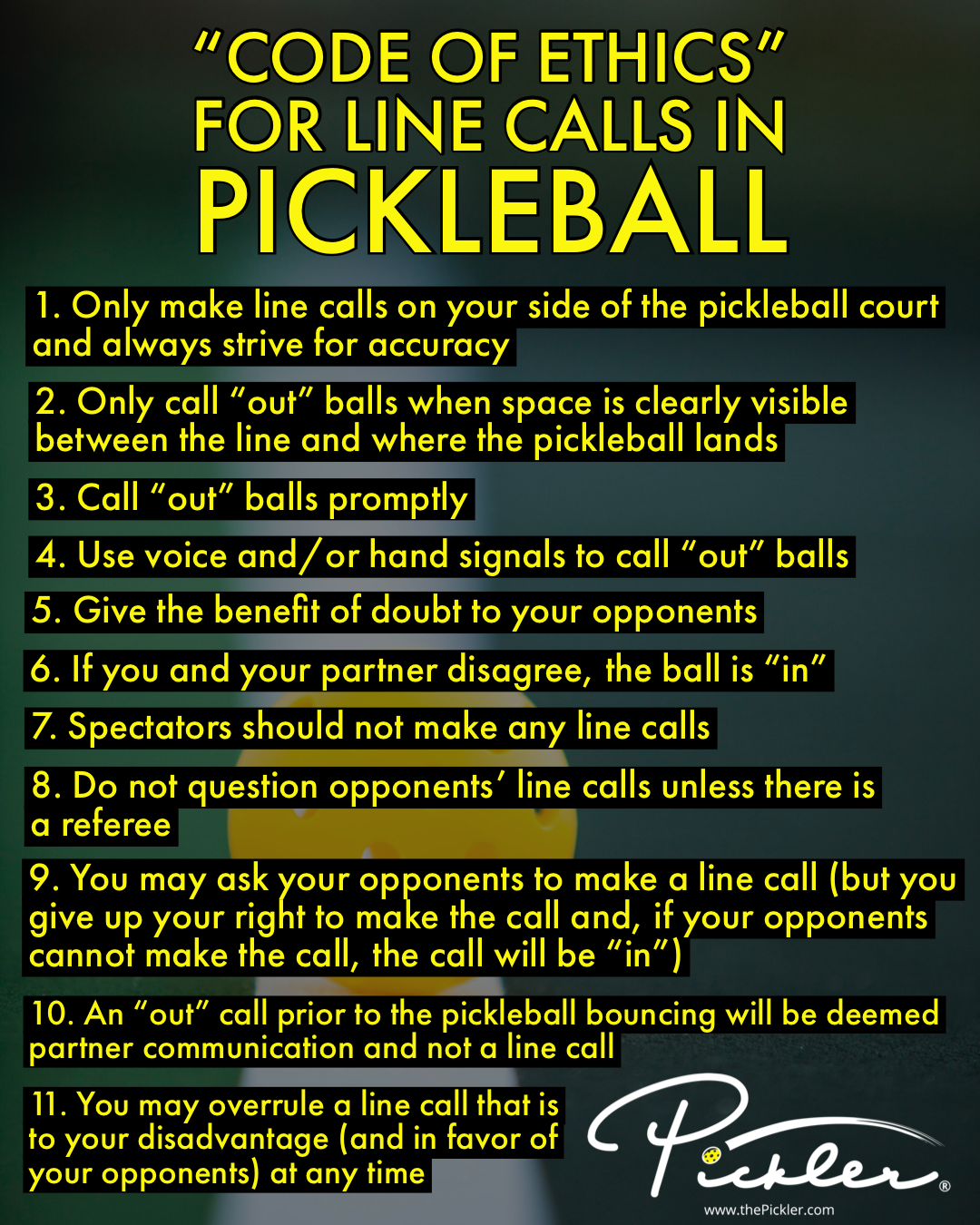
- Players must strive for accuracy and use their best efforts to be accurate.
- Players should only call a pickleball “out” when looking across a line on the pickleball court if they can clearly see space between the line and the space where the pickleball lands. This means that close calls will be best viewed by a player that is looking from the inside of the pickleball line across the applicable line in question to the outside of the pickleball court, as opposed to a player that is on top of the line or looking from the outside of the pickleball court across the applicable line to the inside of the pickleball court. This is because the player looking from the inside of the court to the outside of the court will have the best angle to see whether there is space between the line and where the pickleball landed.
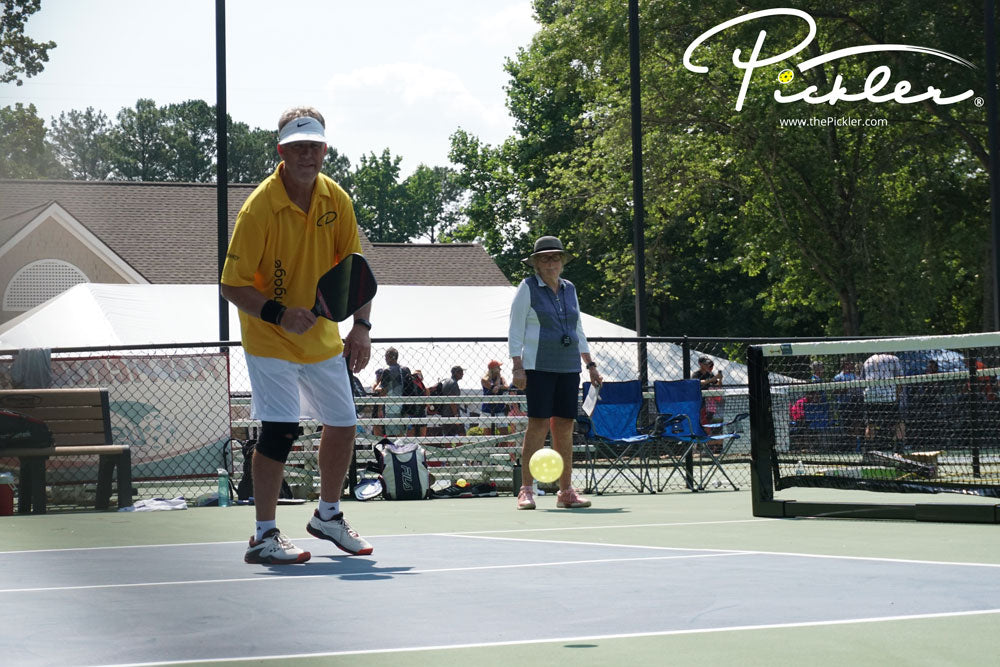
- Players should call “out” balls promptly, which means that the “out” call should be before the opponent(s) hit the pickleball or the ball becomes dead. Players cannot wait until the end of a point or after a shot to make the appropriate call – the line call must be prompt. If an “out” call is not prompt, then the pickleball will be presumed to be “in” and the rally will be presumed to continue.
- Voice and hand signals should be given to call “out” balls, and such voice and hand signals should be used regardless of how obvious the call may have been. Further, deaf or hard of hearing players may use only hand signals, and hand signals are encouraged by all players when playing with deaf or hard of hearing players.
- Players must give the benefit of any doubt on a line call to their opponent(s). In other words, if there was any uncertainty, the opponent(s) win the rally. All questionable line calls should be resolved in favor of the opponent(s).
- If a doubles team disagrees on whether the pickleball was “in” or “out,” then the ball will be ruled “in.” However, if there is a referee and the doubles team appeals to the referee, then the referee may rule the pickleball “out” if the referee saw the line call and saw the pickleball “out.” If the referee did not see the line call, then the pickleball will be ruled “in.” As soon as a player/team asks the referee to make a line call, then that player/team has given up his/her/its right to make the line call.
- Spectators should not weigh in on any line call.
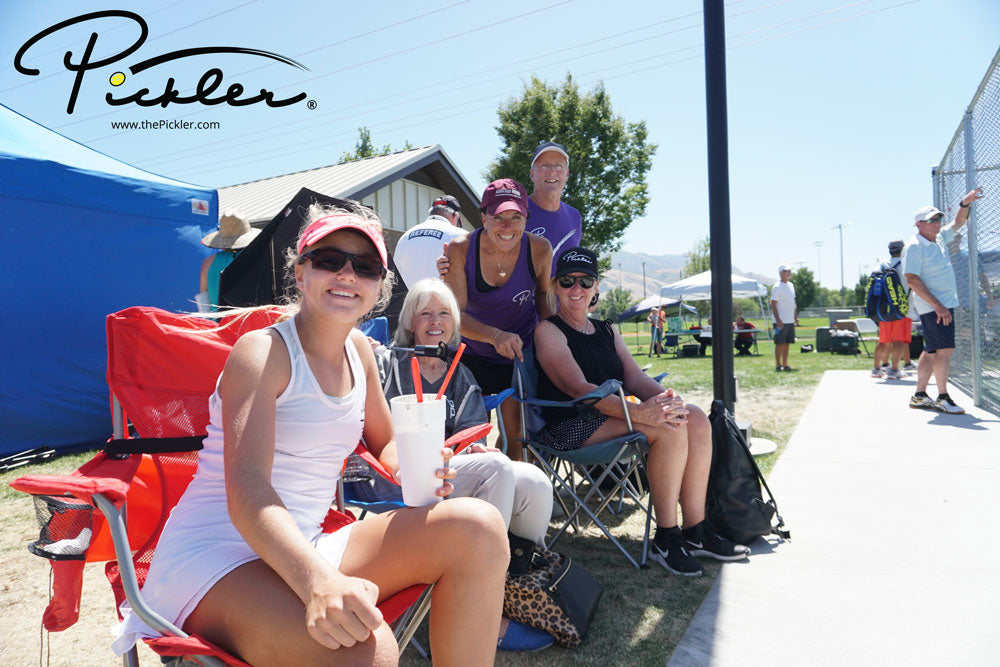
- Players should not question their opponents’ line calls. However, if there is a referee, players may appeal any line call to the referee at any time prior to the next serve.
- Players may ask their opponent(s) to make a line call. However, if the opponent(s) were unable to see the line call, then the ball will be ruled “in.” As soon as a player/team asks the opposing team to make a line call, then that player/team has given up his/her/its right to make the line call.
- Similarly, a player or team may ask the referee to make a line call at any time prior to the next serve. However, if the referee was unable to see the line call, then the referee will rule the ball “in.” As soon as a player/team asks the referee to make a line call, then that player/team has given up his/her/its right to make the line call.
- If a referee overrules a line call, then the player(s) that did not make the line call will win the rally. In other words, the player(s) that made the line call will lose the rally.
- If the pickleball is in the air, and a player yells “out,” “no,” or other similar phrases to communicate with his or her partner in doubles play, then such voice communication is deemed partner communication and is not a line call. However, if the pickleball has bounced, then a line call will be deemed to have been made and play will stop.
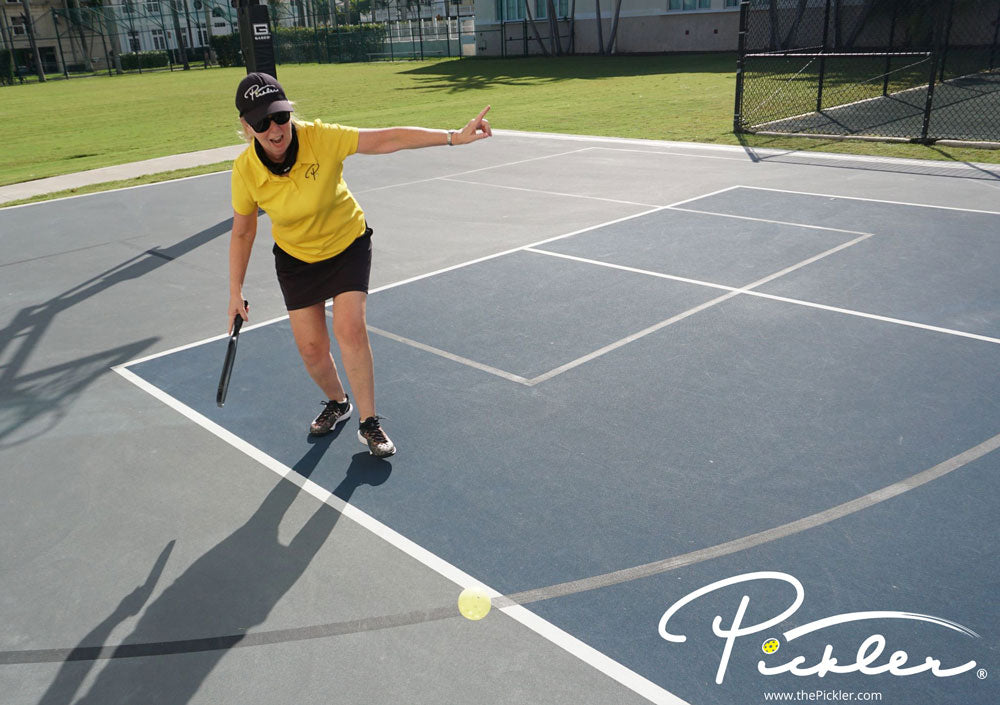
- Players may (even when there is a referee and/or line judges) overrule a call to their disadvantage (in other words, in their opponents’ favor) at any time.
Although there is a written “Code of Ethics for Line Calling,” it seems refreshing that the sport of pickleball fosters a culture of good sportsmanship by embracing an honor system for line calling.
Resolving Disputes Over Pickleball Line Calls
The general rule when it comes to line call disputes on the pickleball court is that you should not question your opponents’ line calls. However, if there is a referee, you may appeal any line call to the referee at any time prior to the next serve. To note, you may also appeal any line call by a line judge to the referee at any time prior to the next serve.
Let’s further breakdown the order of precedence for a dispute over a line call on the pickleball court.
Order of Precedence
Assume that no line call was made by the player or team on the side of the pickleball court where the pickleball landed:
- The player or team on the side of the pickleball court where the pickleball landed is responsible for making the line call. If the player or team clearly saw the line call, then the player or team should make the line call. Otherwise, the pickleball will be presumed to be “in,” as all doubt is resolved in favor of the opponent(s).
- However, the player or team could ask either the referee or the opponent(s) if they saw the line call. The referee or opponent(s) (as applicable) will make the line call only if they clearly saw the line call. If not, then the pickleball will be presumed “in.” As soon as the player or team asks either the referee or the opponent(s), then that player or team gives up their right to make the line call. As a result, whether or not the referee or the opponent(s) make a line call or not, the player or team may not make a line call.
- If the player or team asked the opponent(s) to make the line call (rather than the referee), then the player or team still has one more appeal if there is a referee for the pickleball game. This is true even if the opponent(s) clearly made a line call. The player or team who originally was responsible for making the line call could still appeal to a referee (if there is a referee). The referee will make the line call only if the referee clearly saw the line call. If not, then the opponents’ line call will stand. Again, as soon as the player or team asks either the referee or the opponent(s), then that player or team gives up their right to make the line call.
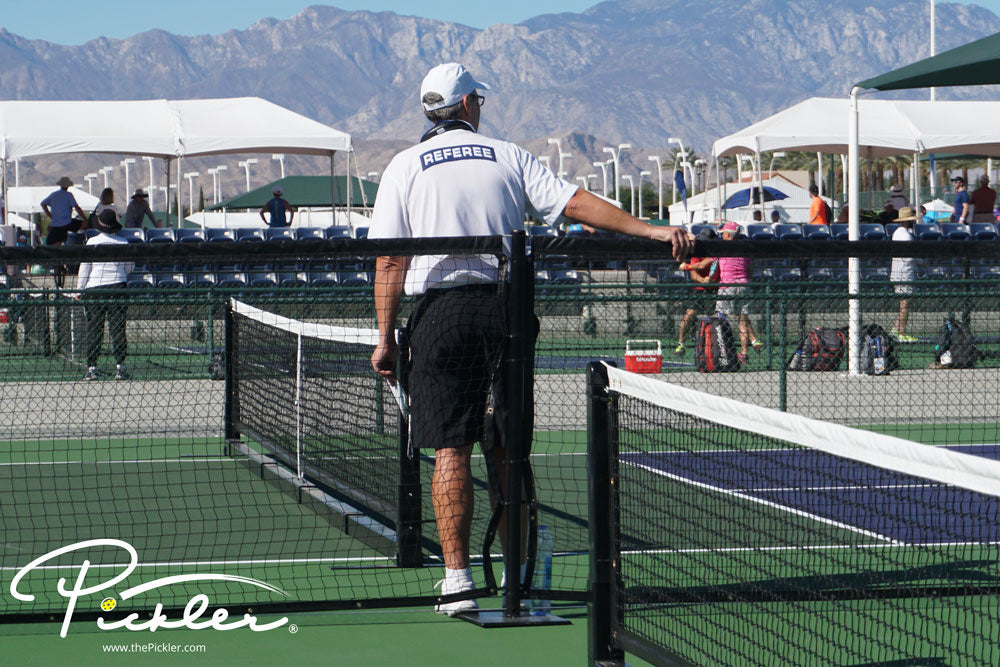
Now, assume that a line call was made by the player or team on the side of the pickleball court where the pickleball landed:
- Even if the player or team on the side of the pickleball court where the pickleball landed makes a line call, the player or team could still ask either the referee or the opponent(s) if they saw the line call. The referee or opponent(s) (as applicable) will make the line call only if they clearly saw the line call. If not, then the initial call will stand. As soon as the player or team asks either the referee or the opponent(s), then that player or team gives up their right to make the line call. As a result, whether or not the referee or the opponent(s) make a line call or not, the player or team may not make a line call – either the referee or the opponent(s) will make the line call or, if they did not clearly see, then the initial call will stand.
- If the player or team asked the opponent(s) to make the line call (rather than the referee), then the player or team still has one more appeal if there is a referee for the pickleball game. This is true even if the opponent(s) clearly made a line call. The player or team who originally was responsible for making the line call could still appeal to a referee (if there is a referee). The referee will make the line call only if the referee clearly saw the line call. If not, then the opponents’ line call will stand. Again, as soon as the player or team asks either the referee or the opponent(s), then that player or team gives up their right to make the line call.
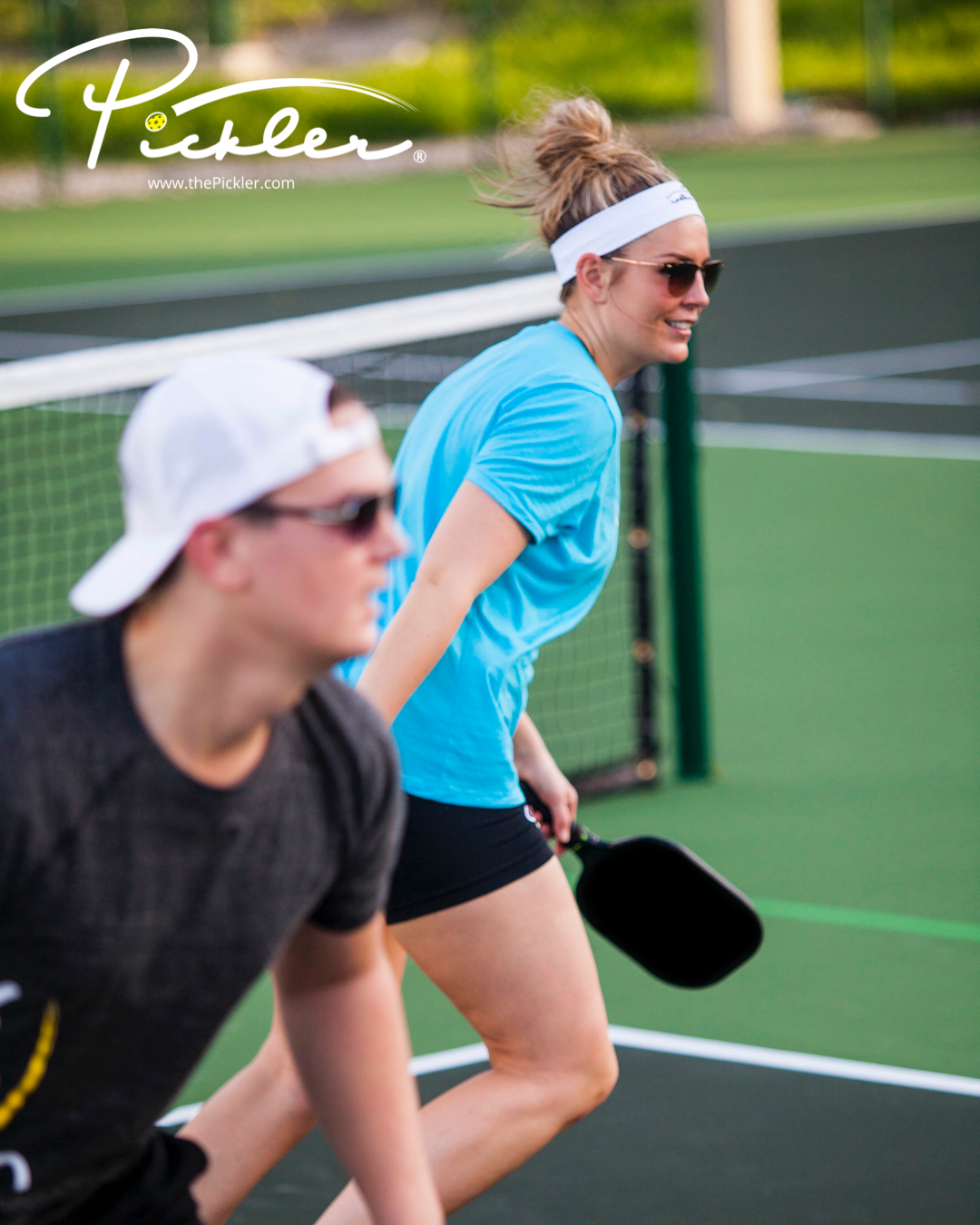
No Lets in Pickleball for Tough Line Calls
You will notice that there is no language in the Official Rulebook for pickleball for claiming a let (in other words, a do over) on the pickleball court in connection with a line call. There are no “do over” points in pickleball, and no player can claim a let if that player did not see a particular line call. Rather, the pickleball is presumed to be “in.”
With that said, oftentimes in recreational play, many pickleball players will allow a let and replay the point for a tough line call (despite this “do over” not being expressly permitted by the Official Rulebook). This mostly stems from the pickleball culture of fair play and good sportsmanship. This also stems from the principal that, if there is a situation on the pickleball court regarding a line call that is not covered by these rules or the Code of Ethics for Line Calling – in other words, a “rule-less” situation that is not addressed by the Official Rulebook – players should cooperate with each other to resolve any dispute, which could include a replay of the point. Lastly, the concept of “do overs” in pickleball may stem from the saying that “the pickleball never lies.” This is based on the belief that the pickleball will favor the player or team that really won the previous rally – think of it like karma.
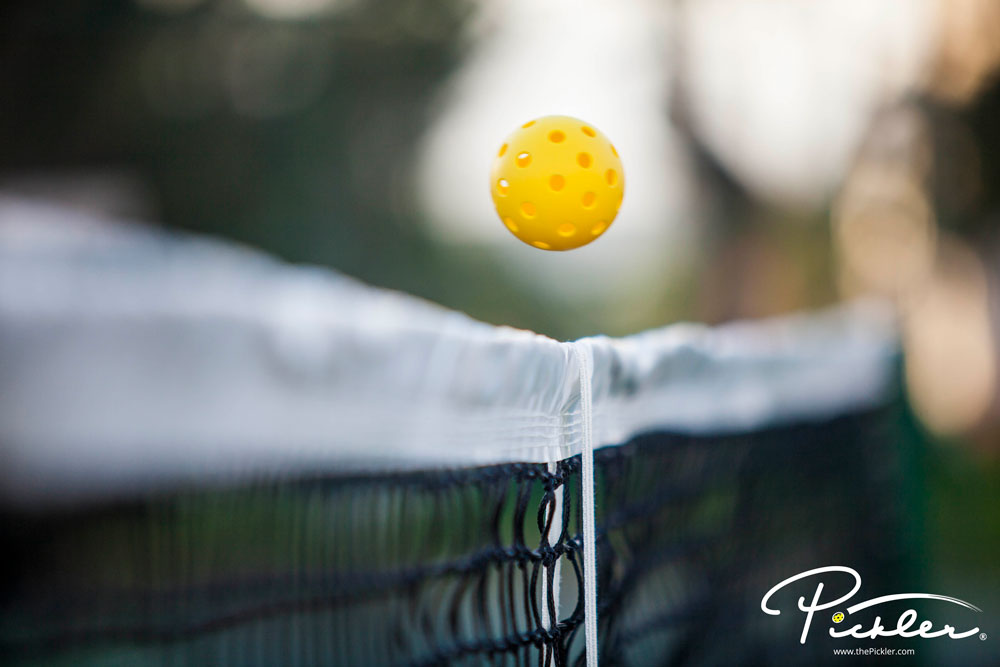
Are You Ready to Make the Line Call?
In summary, make line calls the way you would want your opponent(s) to make line calls against you. Only make line calls on the pickleball court that you clearly see. Strive for accuracy and resolve any doubt in favor of your opponent(s). And, lastly, be loud and be prompt with your voice and hand signals!
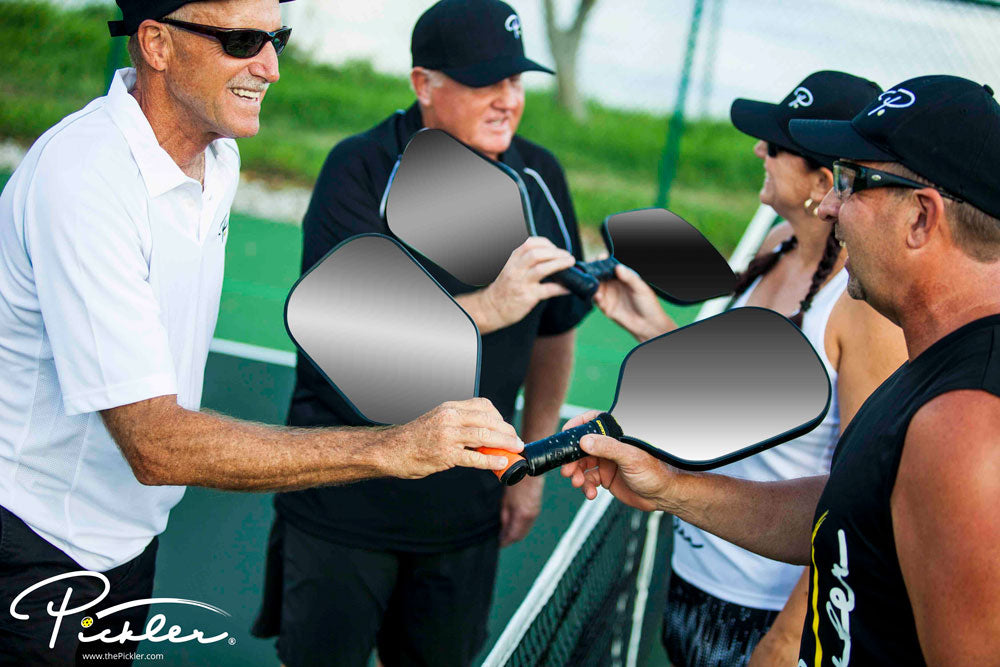
Looking for More Pickleball Rules?
We know pickleball rules can be tricky at times. Don’t worry. Pickler explains the ins and outs of all of the pickleball rules in a series of pickleball rules blogs to make sure that you make the right call on the pickleball court. Learn more by visiting Pickler’s pickleball rules blogs that are linked below!
- Pickleball Rules – The Ultimate Guide to the Rules of Pickleball
- 10 Must Know Pickleball Rules Before Your Hit the Court
- 10 Pickleball Rules Changes to Learn for 2021
- Pickleball Rules – Learn How to Start – 5 Things You Need to Play
- Pickleball Dictionary – Quickly Learn the Pickleball Vocabulary
- Pickleball Serving Rules – Master the Start of Every Pickleball Game
- Pickleball Scoring Rules – Learn How to Keep the Score in Pickleball
- Pickleball Kitchen Rules – Learn Important Non-Volley Zone Rules
- Pickleball Line Call Rules – How to Make the Right Call
- Pickleball Rules – Faults & Dead Balls on the Pickleball Court
- Pickleball Rules – Commonly Misunderstood Rules in Pickleball
- Pickleball Tournament Rules – Must Read Before a Tournament
- Singles Pickleball Rules – How to Play Singles Pickleball
- Wheelchair Pickleball Rules – How to Play Wheelchair Pickleball
Looking for More Pickleball Tips, Strategies & Information?
For more pickleball tips, strategies, and other information, check out Pickler’s Pickleball Guide and Pickleball Blog!

